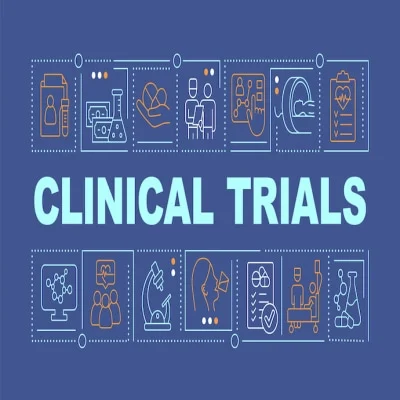Over the last fifty years, randomised clinical trials have advanced medical practice, particularly in critical care. These trials offer the most rigorous means of determining treatment effects, allowing for evaluating new and established medical interventions within ICUs.
Despite their profound impact, clinical trials are challenging endeavours. They are costly, time-consuming, and complex, often hindered by regulatory hurdles. Launching and conducting trials requires substantial time and resources, especially for multicentre trials that involve coordinating numerous sites, legal agreements, and funding arrangements.
To complete trials within constrained timeframes, researchers may prioritise short-term goals over long-term improvements, such as implementing automated data collection systems or gathering mechanistic data during trials to better understand their outcomes. Consequently, trial results frequently remain inconclusive, failing to definitively confirm or dismiss the efficacy of interventions, partly due to the limitations of traditional fixed sample size designs.
A paradigm shift is necessary in clinical research trials to surmount these challenges. A forward-thinking approach should be used that establishes a collaborative research ecosystem designed for long-term sustainability. This system should foster ongoing collaboration, discovery, and advancements in patient care.
This integrated research system can enhance operational efficiency and insights by leveraging methodological expertise and innovation across multiple trials. Through continuous learning and improvement, future trials can benefit from previous experiences, resulting in greater success and efficiency. Adaptive platform trial designs, which dynamically adjust based on accumulating trial data, exemplify this approach, providing a framework for sustained learning and efficient decision-making in clinical research.
Although adaptive platform trials have existed for years, their significance was underscored during the COVID-19 pandemic, where they facilitated the rapid evaluation of multiple therapies. This experience highlighted the potential of multiplatform trials, where interventions are tested across various settings to expedite trial conclusions and maximise global impact.
Drawing from these lessons, several adaptive platform trials are underway to investigate novel treatments and strategies for critical illness, offering promising avenues for collaborative research and improved patient outcomes. A few examples include:
REMAP-CAP (Randomized Embedded Multifactorial Adaptive Platform Trial for Community-Acquired Pneumonia) is a pioneering example in adaptive platform trials. Originating in response to the H1N1 influenza pandemic in 2009, REMAP-CAP has emerged as a significant force in clinical research. Since 2016, it has enlisted over 13,000 patients suffering from severe community-acquired pneumonia across more than 300 hospitals globally, spanning every continent.
PRACTICAL (Platform of Randomized Adaptive Clinical Trials in Critical Illness) represents a novel initiative delving into interventions for acute hypoxaemic respiratory failure across diverse therapeutic avenues. Initially concentrating on respiratory support strategies and corticosteroids, PRACTICAL aspires to establish a series of trials addressing acute hypoxaemic respiratory failure through various phases of investigation, including pilot and feasibility trials and phase II, III, and II/III trials.
PANTHER (Precision Medicine Adaptive Platform Network Trial in Hypoxemic Acute Respiratory Failure) has a broad objective of expediting the development of pharmacological treatments for acute hypoxaemic respiratory failure and acute respiratory distress syndrome (ARDS) through the establishment of an international phase II precision medicine adaptive platform trial (https://panthertrial.org). This initiative aims to investigate patients exhibiting hyper- and hyperinflammatory phenotypes of ARDS to determine whether simvastatin or an additional biologically targeted intervention (to be determined) enhances organ failure–free days at Day 28 compared to usual care alone, as defined by the newly published global definition of ARDS.
INCEPT aims to optimise its methodology for efficient and effective trial conduct. The primary and guiding outcomes will be derived from a core outcome set for general ICU patients, developed collaboratively by the INCEPT group alongside patients, family members, clinicians, and researchers. Leveraging a sophisticated data model and electronic case report forms, INCEPT will seamlessly capture data from electronic patient records. A unique funding model, developed in collaboration with hospital managers, will supplement external philanthropic funding to ensure the trial's sustainability. INCEPT builds upon the groundwork laid by the EMPRESS (Empirical Meropenem versus Piperacillin/Tazobactam for Adult Patients with Sepsis) adaptive trial, utilising parts of INCEPT's infrastructure and methodology.
TRAITS, which stands for Evaluation of interventions linked to treatable traits in acute critical illness in adults to enable precision medicine, is a comprehensive research program aimed at improving outcomes for critically ill adult patients through precision medicine (https://traits-trial.ed.ac.uk). This initiative is characterised by its innovative design, which includes a data-enabled, embedded, multiarm, umbrella, adaptive platform trial within a Bayesian analytic framework.
Adaptive platform trials promise to conduct clinical trials more efficiently and cost-effectively, leading to higher quality and more informative results for guiding clinical decisions. However, they have challenges, including unfamiliar methods and regulatory hurdles. Collaboration is key to their success, both within platforms and between them, to ensure seamless integration and maximise the value of data. Furthermore, fostering collaboration beyond platforms is essential for building a welcoming research community and providing opportunities for investigators, particularly those early in their careers. Realising the potential of adaptive platform trials in critical care requires significant investment, effort, and a steadfast commitment to collaboration.
Source: AJRCCM
Image Credit: iStock







